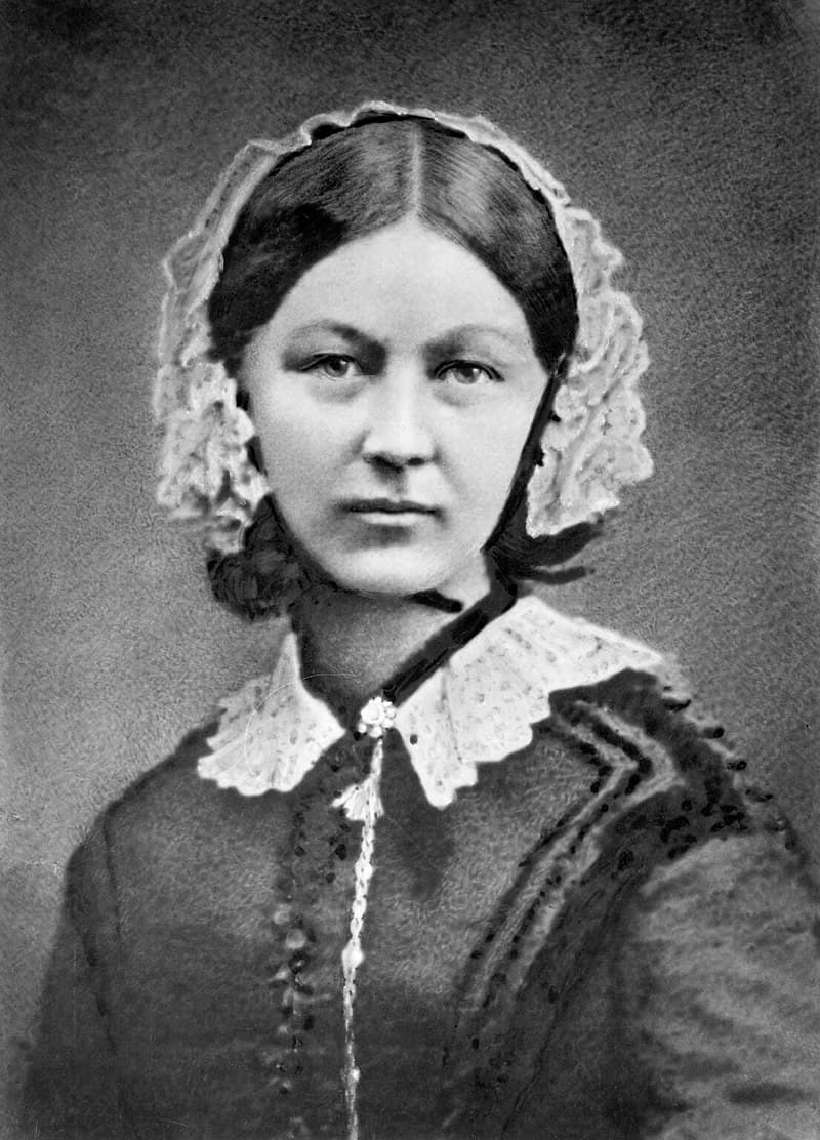Florence Nightingale: The Lady With A Lamp
Home / Non Fiction for Kids / Biographies for Kids / Florence Nightingale: The Lady With A Lamp
Florence Nightingale (1820 - 1910)
Today, it is common knowledge that female nurses play an important role in treating patients. However, this was not always the case. Florence Nightingale helped build the reputation of nurses as we know it today. She was a social worker, statistician and founder of modern nursing.
Nightingale used to train nurses during the Crimean war and would often treat soldiers under the cover of darkness. This led to English society giving her the title, The Lady With A Lamp. The highest award a nurse can achieve was named in her honor and her birthday is celebrated as International Nurses Day.
Florence Nightingale’s impact on the world was vast. She created the first nursing college that was open for anyone to join. Her social reforms included improving healthcare for British society, fighting for hunger relief in India, and expanding the different forms of female participation in the workplace. She also published a large amount of written work during her life. It focused on spreading medical knowledge using simple language so that it could be understood by everyone.

Florence Nightingale was born on 12 May 1820 into a wealthy and well-connected British family in Tuscany, Italy. She faced immense pressure from her family to follow the path deemed acceptable for a well to do, young woman. They disagreed with her idea to become a nurse but Nightingale persisted and gathered as much knowledge about nursing as possible.
In 1847, she became close friends with the British Secretary of War. He was overseeing the Crimean war and helped Nightingale during her work. She was also helped by her father who gave her an annual income. This was instrumental in allowing her to pursue her calling. Nightingale received her formal education in nursing from the Institution of Kaiserswerth in Germany. After this, she left for Crimea with 38 other volunteers under the authority of the Secretary of War.
Nightingale arrived early in November 1854 near present-day Istanbul. The situation was extremely dire. Food and medicines were running out, the government was indifferent, mass infections were common and the medical staff was overworked. Her impact during the Crimean war was incredible. Her writings pushed the British government to build a mobile hospital that was shipped into the warzone. She implemented procedures of hygiene which reduced the mortality rate in the hospitals from 42% to 2%. This remarkable success encouraged her to focus on hygiene and nutrition in hospitals. Her work was used by the government across army and civilian hospitals.
After returning from the war, she founded the Nightingale Training School at St. Thomas’ Hospital to train nurses. The curriculum was taken a from book that Nightingale wrote in 1859 called Notes on Nursing. This book was a critical turning point in the history of nursing. The topics were of vital importance and were barely known by the medical profession. It was at a time when hospitals were riddled with infection and nurses were regarded as ignorant and uneducated. The book was used to train countless nurses and create a basic standard in nursing care. This laid the foundations for the profession of nursing. It is incredible that during one lifetime, Florence Nightingale was able to birth and raise an entire profession. She was also the first woman to be awarded the Order of Merit for exceptional service to the armed forces.
From 1857 onwards, Nightingale was often bedridden and suffered from depression. This was due to two diseases. Brucellosis, which was due to a bacteria in unpasteurized milk and spondylitis, an infection similar to arthritis. Yet, she remained active in her field. She wrote a book on the organization of hospitals which was implemented across Europe. Florence Nightingale died peacefully on 13 August 1910 in her home in London.
Florence Nightingale had a rich legacy with a profound impact on the medical profession. She created the world’s first nursing program. It is still in force today and has trained thousands of nurses. The Red Cross named their highest nursing award in her honor as did the Government of India. During the Vietnam war, many nurses were inspired by the story of Florence Nightingale. Undoubtedly, the persistence and dedication of Nightingale will not be forgotten. Especially in the light of her struggles. She fought against her family, the society, and political barriers to help the wounded, the sick, and those in need.
Born: 12 May 1820, Tuscany, Italy
Died: 13 August 1910, London, England
Education: The Institution of Kaiserswerth on the Rhine (1850 - 1853)
Major contribution: Development of nursing, methods of hygiene in hospitality, order of merit
More about Florence Nightingale
776 words |
8 minutes
Readability:
Grade 9 (14-15 year old children)
Based on Flesch–Kincaid readability scores
Filed under: biographies
Tags: #women's empowerment, #crimean war, #nursing
You may also be interested in these:
Emmeline Pankhurst: Leading the battle for Women's right to vote